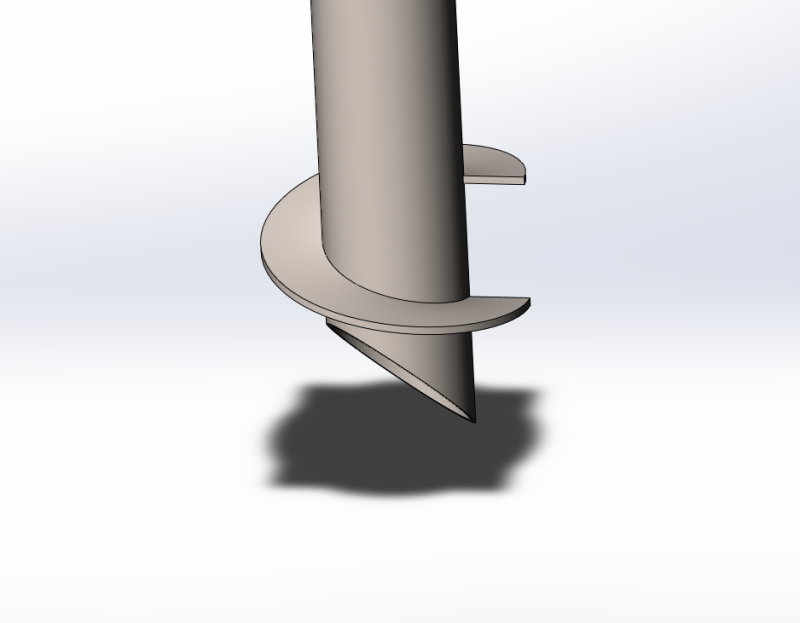I am installing a 40' tall self-supporting tower and considering the use of screw piles for its foundation. The previous plan for a concrete foundation was abandoned when the soil was excavated. Fine silty clay "alluvium" for the first 2 meters, and a gradual progression to sandy clay below that.
The contractor I have been talking to insists on custom-making the screw-piles they use, rather than purchasing them off the shelf. On reviewing datasheets from AB-Chance, I can't see a significant difference, except, of course, the cost. This Chance anchor: SA150-0019 would do just fine, in my estimation. Of course, I haven't selected a screw-pile anchor before, but I can read a drawing and do a stress analysis. It will be just fine, even with a reduced Kt factor.
Is there any experience working with Chance anchors that would justify the opinion of my contractor?
Are there other suppliers that should considered or recommended?
Those who read the (aerospace) line beside my member name will surely notice that this isn't my discipline of engineering. I admit that this is a personal project, not a commercial one. I think it's about time I got high-speed internet at my house, for less than 200 USD$per month. I live in a fairly remote area. I need the tower to get a line of sight with a lower-cost provider.
STF
The contractor I have been talking to insists on custom-making the screw-piles they use, rather than purchasing them off the shelf. On reviewing datasheets from AB-Chance, I can't see a significant difference, except, of course, the cost. This Chance anchor: SA150-0019 would do just fine, in my estimation. Of course, I haven't selected a screw-pile anchor before, but I can read a drawing and do a stress analysis. It will be just fine, even with a reduced Kt factor.
Is there any experience working with Chance anchors that would justify the opinion of my contractor?
Are there other suppliers that should considered or recommended?
Those who read the (aerospace) line beside my member name will surely notice that this isn't my discipline of engineering. I admit that this is a personal project, not a commercial one. I think it's about time I got high-speed internet at my house, for less than 200 USD$per month. I live in a fairly remote area. I need the tower to get a line of sight with a lower-cost provider.
STF

